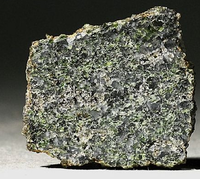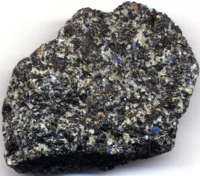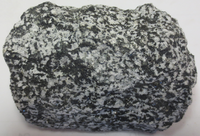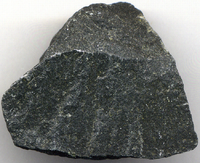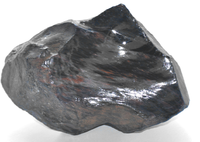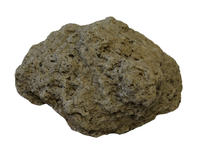Difference between revisions of "Igneous"
(→Key Stage 3) |
|||
| (2 intermediate revisions by the same user not shown) | |||
| Line 6: | Line 6: | ||
===About Igneous Rocks=== | ===About Igneous Rocks=== | ||
: When [[magma]] or [[lava]] [[freezing|freezes]] it is called an '''igneous''' rock. | : When [[magma]] or [[lava]] [[freezing|freezes]] it is called an '''igneous''' rock. | ||
| − | : When the [[magma]] is trapped underground it [[freezing|freezes]] slowly and this makes very large [[ | + | : When the [[magma]] is trapped underground it [[freezing|freezes]] slowly and this makes very large [[crystal]]s in the rock. This is called 'intrustive rock'. |
| − | : When the [[lava]] comes out of the [[volcano]] it cools down and [[freezing|freezes]] quickly making small [[crystal]]s. This is called | + | : When the [[lava]] comes out of the [[volcano]] it cools down and [[freezing|freezes]] quickly making small [[crystal]]s. This is called 'extrusive rock'. |
: [[Igneous]] rocks have sharp interlocking [[Grain (Rock)|grains]]. | : [[Igneous]] rocks have sharp interlocking [[Grain (Rock)|grains]]. | ||
| Line 18: | Line 18: | ||
|[[File:Diorite.png|center|200px]] | |[[File:Diorite.png|center|200px]] | ||
|- | |- | ||
| − | | style="height:20px; width:200px; text-align:center;" | | + | | style="height:20px; width:200px; text-align:center;" |Granite is an [[igneous]] rock with large interlocking [[Grain (Rock)|grains]]. |
| − | | style="height:20px; width:200px; text-align:center;" | | + | | style="height:20px; width:200px; text-align:center;" |Gabbro is an intrusive [[igneous]] rock. |
| − | | style="height:20px; width:200px; text-align:center;" | | + | | style="height:20px; width:200px; text-align:center;" |Diorite cools very slowly underground so it has large [[crystal]]s. |
|} | |} | ||
| Line 30: | Line 30: | ||
|[[File:Pumice.png|center|200px]] | |[[File:Pumice.png|center|200px]] | ||
|- | |- | ||
| − | | style="height:20px; width:200px; text-align:center;" | | + | | style="height:20px; width:200px; text-align:center;" |Basalt forms from [[lava]] so it is an extrusive [[igneous]] rock. |
| − | | style="height:20px; width:200px; text-align:center;" | | + | | style="height:20px; width:200px; text-align:center;" |Obsidian is an [[igneous]] rock that cools so quickly that [[crystal]]s don't have any time to form at all. |
| − | | style="height:20px; width:200px; text-align:center;" | | + | | style="height:20px; width:200px; text-align:center;" |Pumice bursts out of [[Volcano]]es and gives of [[gas]]es that make bubbles inside making it look like a sponge. |
|} | |} | ||
Latest revision as of 09:37, 4 April 2019
Key Stage 3
Meaning
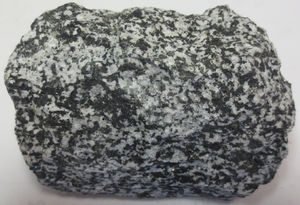
You can see the sharp interlocking grains of the igneous rock.
An igneous rock is a rock formed from magma or lava.
About Igneous Rocks
- When magma or lava freezes it is called an igneous rock.
- When the magma is trapped underground it freezes slowly and this makes very large crystals in the rock. This is called 'intrustive rock'.
- When the lava comes out of the volcano it cools down and freezes quickly making small crystals. This is called 'extrusive rock'.
- Igneous rocks have sharp interlocking grains.
Examples
| Granite is an igneous rock with large interlocking grains. | Gabbro is an intrusive igneous rock. | Diorite cools very slowly underground so it has large crystals. |
| Basalt forms from lava so it is an extrusive igneous rock. | Obsidian is an igneous rock that cools so quickly that crystals don't have any time to form at all. | Pumice bursts out of Volcanoes and gives of gases that make bubbles inside making it look like a sponge. |
